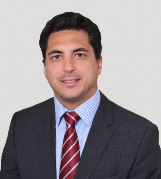Kobre & Kim's Asset Recovery Contacts
Recovering Stolen Funds from Business Email Fraudsters
One of the most common forms of fraud affecting businesses worldwide is Business Email Compromise (BEC), and is often connected to underground moneychangers based in Asia. A multijurisdictional team that understands the legal tools at their disposal (including a recent Hong Kong Court decision) is essential to match the speed of the fraudsters.
One of the most common forms of fraud affecting businesses worldwide is Business Email Compromise (BEC), where perpetrators breach an organization’s email system to induce international wire transfers. Often based in Asia, BEC fraudsters are known to use a network of underground moneychangers to move stolen funds rapidly beyond the reach of victims. A recent decision in Hong Kong, however, disrupted this shadow-banking network and showed that substantial recovery is possible.
In a landmark victory for a U.S.-based technology company that was a victim of a U.S. $40 million BEC fraud, the Hong Kong High Court ruled against a group of licensed and unlicensed moneychangers who had received part of the stolen funds, rejecting their defense (and this month, their appeal) that they had simply processed the transactions in the ordinary course of business. Now, moneychangers earning a small percentage of commission risk millions of dollars in losses if they assist fraudsters, knowingly or unknowingly, in moving tainted funds.
However, BEC fraudsters and their moneychanger allies continue to adapt their methods. Businesses must be vigilant in protecting themselves from BEC fraud, and to ensure a swift recovery of stolen funds if they do become a victim:
Prevention is better than the cure – Avoid reliance on email approval for wire transfers:
Fraudulent emails tend to “spoof” or mimic emails from authorized personnel. If your business’s procedures allow an external wire transfer with only email approval from a senior executive, it is highly vulnerable to a BEC fraud. Consider including an in-person or telephone confirmation in your payment approval process.
Time is of the essence – Engage counsel and authorities immediately upon suspicion:
Fraudsters not only plan their crime, but also how to move their ill-gotten gains quickly beyond a victim’s reach. Once you even suspect that BEC fraud has taken place, every second counts. The only chance of recovering funds is to act as quickly as possible to engage counsel, inform local police and freeze the fraudsters’ bank accounts.
Go down the money line – Underground banks are fair game for tracing:
Often to circumvent currency controls or other regulations, fraudsters typically use underground banking systems when laundering funds across borders. If funds cannot be frozen when in the fraudster’s hands, they may still be traced to next-level recipients. Underground banks that have received stolen funds are not impenetrable from — and can indeed be fair game for — asset tracing and recovery efforts.
Business Email Compromise presents a growing fraud risk to virtually all companies that conduct business around the world. When affected, victims need to match the speed of the criminals, acting across multiple jurisdictions and with the full set of legal tools necessary to trace, freeze and recover assets effectively.
About Kobre & Kim's Asset Recovery Team
Kobre & Kim is a conflict-free Am Law 200 law firm focused on disputes and investigations, often involving fraud and misconduct.
The firm’s recent victory on behalf of its client in Hong Kong (outlined in the above case study) is just one example of our team’s deep experience devising effective fraud-related global asset recovery strategies including freezing, tracing and recovering misappropriated funds. We have had success freezing assets through both judicial and non-judicial means to repatriate funds to victims.
Kobre & Kim’s asset recovery team has significant experience acting on behalf of judgment and arbitration award creditors to develop and implement enforcement and asset tracing and recovery strategies to monetize high-value judgments.
Many of our cases involve closely coordinated cross-border proceedings, and we are able to advocate directly or work cooperatively with local counsel in jurisdictions in Asia, EMEA, the U.S., Latin America and key offshore financial centers.






